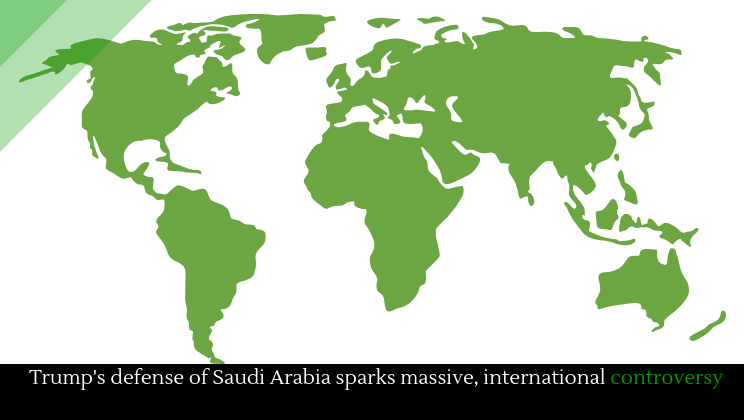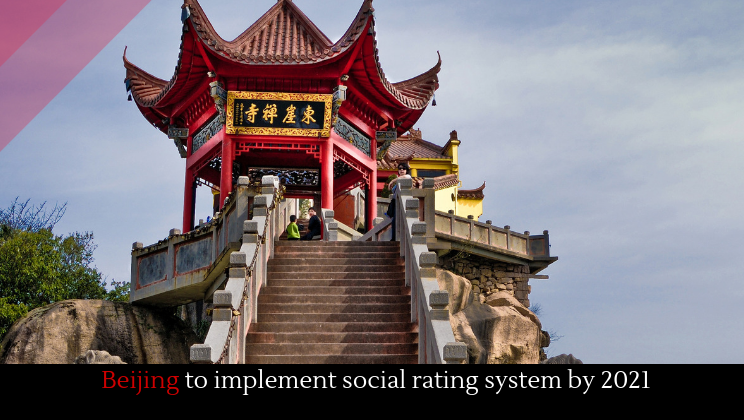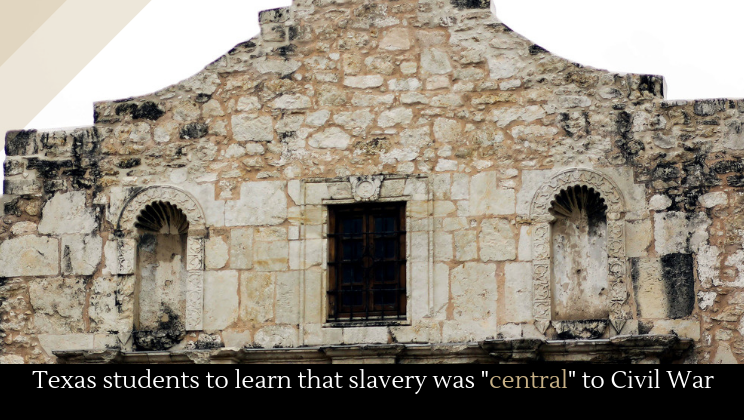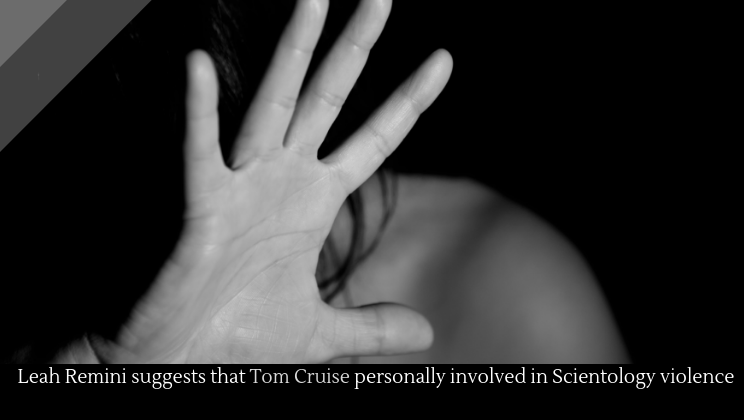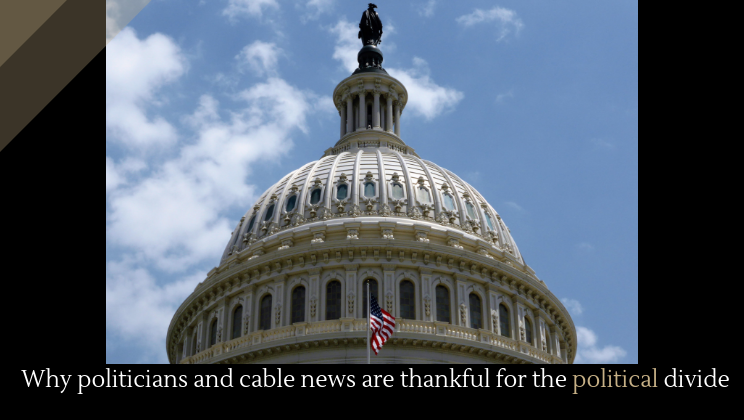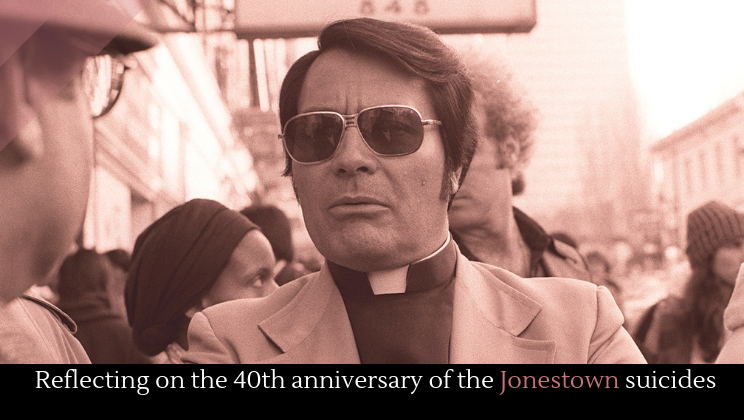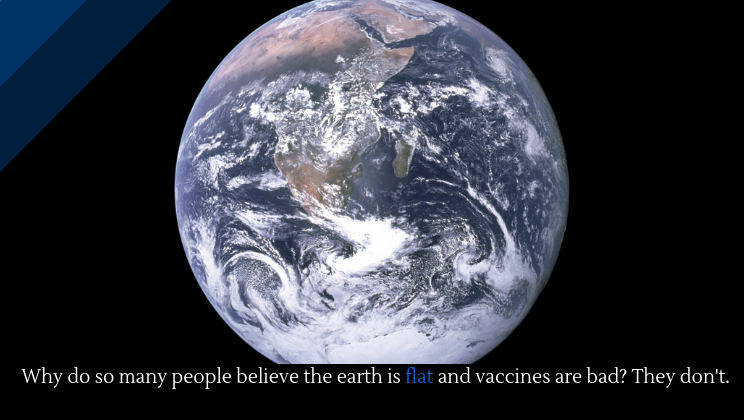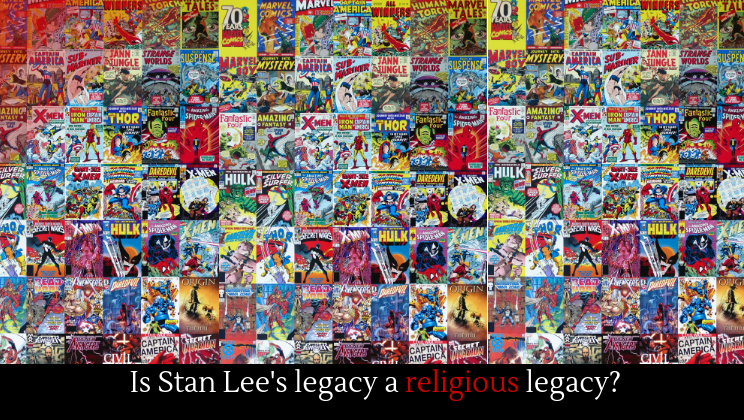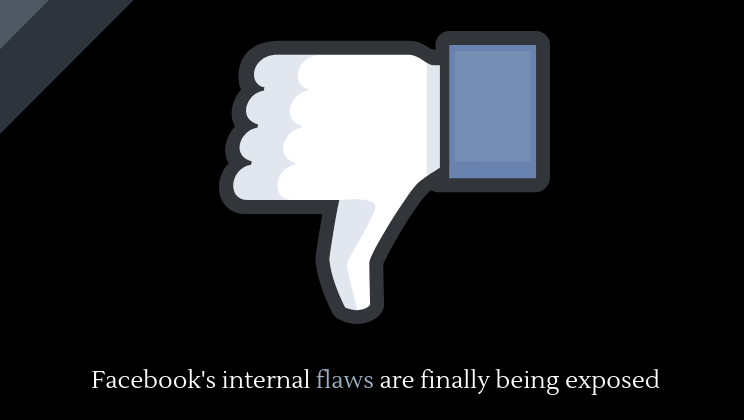Author: Josh Taylor
Trump’s defense of Saudi Arabia sparks massive, international controversy
Posted by Josh Taylor / November 24, 2018As the fallout from the murder of Jamal Khashoggi begins to come into clearer focus, it’s starting to look like the murder of Archduke Ferdinand insofar as its pulling on several strings within a tangled web of international ties.
Khashoggi’s killing has forced President Trump to respond to the accusations that Saudi Arabia orchestrated the murder. Trump could either defend, decry, or deflect on the issue. He opted to defend Saudi Arabia, a longtime American ally.
There will soon be domestic consequences for Trump’s action. CNBC summarizes a Washington Post interview with Adam Schiff,
There are a whole set of potential financial conflicts of interest and emoluments problems that Congress will need to get to the bottom of,” Rep. Adam Schiff, D-Calif., told Greg Sargent, a liberal columnist for the paper. “Certainly if foreign investment in the Trump businesses is guiding U.S. policy in a way that’s antithetical to the country’s interests, we need to find out about it.
This domestic trouble has potentially global consequences. As this NYT opinion piece argues, Trump is right to defend Saudi Arabia, and if he gives in to Democratic pressure there could be global consequences:
The murder of Mr. Khashoggi was a brutal and grotesque act. The United States has registered its feelings loudly and clearly by putting sanctions on the 17 men who were directly involved in the killing. Punishing the de facto leader of Saudi Arabia will not bring justice for Mr. Khashoggi, nor will it make Saudi Arabia a more dependable ally. It will simply diminish the influence of the United States and embolden its enemies.
International pressure, such as the kind that Turkey is laying on thick right now, could add to the Democrat’s pressure on Trump’s decision and potentially cause serious international consequences.
More news.
Read MoreBeijing to implement social rating system by 2021
Posted by Josh Taylor / November 24, 2018By 2021, the Chinese government hopes to have a social rating system in place for each of its 1.3 billion citizens. Although that may seem like an opening line for an episode of Black Mirror, it’s not. This is really happening.
According to Bloomberg,
The tracking of individual behavior in China has become easier as economic life moves online, with apps such as Tencent’s WeChat and Ant Financial’s Alipay a central node for making payments, getting loans and organizing transport. Accounts are generally linked to mobile phone numbers, which in turn require government IDs.
The technical panopticon has the power to ruin citizens’ lives in various ways. If you have a poor score, you can be prevented from buying plane or train tickets, the government can throttle your internet, you or your kids won’t be able to go to the best schools or get the best jobs, you won’t be able to reserve rooms at the best hotels, and you will be publicly listed a a bad citizens. Oh, yeah, and if you have a dog it will be taken away.
Not to be a paranoid fear monger, but it doesn’t take an (soft) authoritarian government like China’s to implement a program like this. These kinds of systems can also emerge organically, and the more social media we commit to, the more likely we are create that system ourselves.
Read MoreTexas students to learn that slavery was “central” to Civil War
Posted by Josh Taylor / November 23, 2018Texas schoolchildren will soon be taught that slavery was the central cause of the Civil War. Before this, they were taught that sectionalism, states’ rights and slavery, in that order, led to the Civil War.
The reason behind the change, according to Democratic Board of Education member Marisa Perez-Diaz (San Antonio), is simple.”What the use of ‘states’ rights’ is doing is essentially blanketing, or skirting, the real foundational issue, which is slavery.” The same Texas Public Radio article quotes the opposition:
Republican board member David Bradley, from Beaumont, argued for keeping the other causes in the curriculum. He said, “Each state had differences and made individual decisions as to whether or not to join into the conflict, correct? I mean, that’s the definition of states’ rights.”
And this, ladies and gentlemen, is what happens when you let non-experts decide how to teach history. Dr. Fritz Fischer, who chairs the history department at the University of Northern Colorado, says,“From my point of view, having been through this eight years ago, it becomes tiresome because it’s just another debate between different people who have different visions.” Instead, students should be shown primary source documents and taught how to interpret data for themselves.
So what do primary source documents say about the Civil War? Here’s Texas’ “Declaration of Causes,” a document from February 2, 1861, in which Texans explained why they joined the Confederacy.
“Texas abandoned her separate national existence and consented to become one of the Confederated States to promote her welfare, insure domestic tranquility [sic] and secure more substantially the blessings of peace and liberty to her people. She was received into the confederacy with her own constitution, under the guarantee of the federal constitution and the compact of annexation, that she should enjoy these blessings. She was received as a commonwealth holding, maintaining and protecting the institution known as negro slavery–the servitude of the African to the white race within her limits–a relation that had existed from the first settlement of her wilderness by the white race, and which her people intended should exist in all future time. Her institutions and geographical position established the strongest ties between her and other slave-holding States of the confederacy. Those ties have been strengthened by association.
…
We hold as undeniable truths that the governments of the various States, and of the confederacy itself, were established exclusively by the white race, for themselves and their posterity; that the African race had no agency in their establishment; that they were rightfully held and regarded as an inferior and dependent race, and in that condition only could their existence in this country be rendered beneficial or tolerable.
That in this free government all white men are and of right ought to be entitled to equal civil and political rights; that the servitude of the African race, as existing in these States, is mutually beneficial to both bond and free, and is abundantly authorized and justified by the experience of mankind, and the revealed will of the Almighty Creator, as recognized by all Christian nations; while the destruction of the existing relations between the two races, as advocated by our sectional enemies, would bring inevitable calamities upon both and desolation upon the fifteen slave-holding States. [emphasis added].”
The document mentions a few other causes for secession, such as the Federal Government’s failure to defend Texas’ border against Indian attacks. But the primary cause is, undeniably, slavery.
Read MoreLeah Remini suggests that Tom Cruise personally involved in Scientology violence
Posted by Josh Taylor / November 23, 2018Few religions are more controversial than Scientology. Indeed for some it’s not even a religion, it’s just a cult. For reasons explained in another article, we prefer not to use the word “cult.” For others, Scientology was a way out of drug addiction or other sufferings. The controversy only increased when Leah Remni’s documentary Going Clear host of accusations made a about the organization.
Tom Cruise is one of the most controversial figures in this already controversial religion. He’s the most famous of all celebrity Scientologists, and he’s also the most deeply committed. Some observers have wondered, however, whether Cruise’s dedication to the group is his own choice. One conspiracy theory––one with some evidence––is that celebrities like Cruise are blackmailed into staying with the organization. The blackmail files come from a church practice called “auditing,” in which members reveal any negative memory or experience in order to free them of its impact on their lives. Allegedly, some celebrities (and maybe everyone) have been secretly recorded during these sessions, and the contents of those recordings used to keep them in the organization. So perhaps, some suggest, Cruise only stays in the organization because he has to.
But according to recent information, Cruise has not been forced into sticking with Scientology. Rather, he is an active participant in even its allegedly abusive practices. This information comes from former church members, meaning that the church has a ready-made rejection of it. Because of the group’s secrecy, the truth of the matter may never be known.
Read MoreWhy politicians and cable news are thankful for the political divide
Posted by Josh Taylor / November 22, 2018Millions of people will spend today thinking about what they’re grateful for. For some, it will be the family gathered with them around the table. For others, it will be their health or their jobs. What unites these reflections of gratitude is that, by and large, they’re all wholesome. But there are at least two groups of people who will be thankful for something much less benevolent. Corrupt, shoddy politicians and cable news companies like CNN and Fox will spend this year contemplating how lucky they are that at least some Americans are at each others’ throats over political or ideological differences.
As this NYT opinion piece depressingly points out, corrupt politicians have benefitted from the partisan divide in the American political scene. Whereas corruption would have once been the seal of death for a politician––since constituents would vote for the other party than support a corrupt politician of their own party––nowadays, voters seem more willing to vote for a corrupt politician than vote for someone of the opposite party. Another NYT piece suggests that Americans don’t actually dislike partisan politics as much as they dislike the other party. Politicians reap the benefits of this dislike.
But they’re not the only ones who benefit. Cable news has been pulling in tremendous ratings recently, and it’s hard to imagine that it’s because of anything but partisanship. The more Americans hate the other side, the more they’re willing to watch shows that openly and regularly attack the opposing ideology.
Read MoreBlack Friday is coming: here’s everything you need to know
Posted by Josh Taylor / November 21, 2018You know what they say. The best defense is a good offense. So instead of rushing into the Black Friday fray, do your due diligence and prepare in advance. Below, you’ll find a list of of links with different Black Friday sales, some focused on stores and others focused on kinds of products. If you have to venture into a store, these links will help send you straight to the sale items that you want.
If you want to step your Black Friday game up, use referral codes. These codes can help you save money on all sorts of things––and at all times.
Read MoreReflecting on the 40th anniversary of the Jonestown suicides
Posted by Josh Taylor / November 20, 2018Earlier this week was the fortieth anniversary of the Jonestown deaths. The Guardian covers the story well, so if you haven’t heard of this event it’s worth the read. There is also a fantastic PBS documentary, which can be seen below. The story of the event has been told and retold a thousand times, so I’m not going to rehearse it here. Instead, I want to deconstruct the first paragraph of that Guardian article, because that paragraph contains two serious problems.
“Four decades ago this Sunday, the Rev Jim Jones, the charismatic leader of an American cult in the Guyanese jungle, ordered his followers to murder a US congressman and several journalists, then commit mass suicide by drinking cyanide-laced fruit punch.”
The first issue is the word “cult.” When you think of the word cult, what comes to mind? Whatever description you came up with was probably negative. Cult conjures images of sinister leaders brainwashing their followers into committing horrible acts. It conjures images of weird people dressed in weird attire doing weird rituals––of satanists sacrificing babies and foreign gurus stealing away sons and daughters. And that’s the problem––the word cult immediately paints a picture for you. When you see the word “cult” in conjunction with Jonestown, you’re liable to misunderstand what actually happened in the jungle that day forty years ago.
The second problem is the word “ordered.” While it’s correct that Jim Jones did orchestrate the murder of Senator Leo Ryan and the group suicide, the term “ordered” fits into the popular narrative that Jim Jones brainwashed or forced his followers to commit suicide. The thing is, that narrative is wrong––while some were forced to commit suicide and some were even murdered, many committed suicide willingly. The FBI had been recording Jones for years, even in Guyana. You can hear the pre-suicide discussions here. They are intense, so listener beware. But you will hear some followers arguing for group suicide. One woman argues against it, but she is quickly shouted down.
The fact is, the people of Jonestown had built themselves a paradise in the jungle. They had escaped the racism and greed of America, and they would rather die with each other (some specifically said that Jones didn’t even factor into their decision) than be taken back to the States. Saying that they were a cult, that they were brainwashed or (all) coerced disrespects the choice they made. We can disagree with that choice, but we should not take it away from them, even after death. If you want to read more, this book is perhaps the best source on Jonestown, and it was the inspiration for this piece.
Read MoreTrump’s trade war with China is benefitting China
Posted by Josh Taylor / November 19, 2018Soren Skou is the chief executive of A.P. Moller-Maersk A/S. That probably means nothing to you, but it’s significant. A.P. Moller-Maersk A/S is the world’s largest container-shipping company. As the CEO, he has access to all the data, and he can tell how much is coming and going from different countries.
In an interview with Bloomberg, Skou said that “Chinese exports to the U.S. actually grew 5-10 percent last quarter. Meanwhile, U.S. exports to China fell by 25-30 percent.” In other words, the trade deficit is getting worse, not better. Skou believes there are two reasons for this: “Firstly, the U.S. economy is doing well so consumers there have more money to spend on imports, he said. Secondly, a lot of the really big U.S. companies are hoarding Chinese imports to buy as much as possible before tariffs kick in, he said.” To clarify the second point, basically large companies like Nike and Wal-Mart are importing as much raw materials as they can before Trump’s tariffs kick in.
Skou goes on to explain that Trump has very little influence of what American companies do. Meanwhile, Chinese companies are much more willing to align their actions with Beijing’s policy goals.
Skou’s interview is part of a growing body of evidence suggesting that Trump’s economic policies are not benefitting the people he said they would. In a piece written for the Washington Post, a professor of finance, real estate, and law offered statistical analyses suggesting that Trump’s promises to even the wealth gap between red and blue counties have fallen flat. In terms of housing prices, “the larger the Trump electorate and the larger the degree of Trump support, the worse the county’s economic performance.” Trump-supporting counties did see slightly more job growth than Clinton-supporting counties, but Trump counties barely grew more than 1%.
What’s the upshot? Trump, like every politician in the history of politics, hasn’t kept his promises. There’s nothing new under the sun, and there’s something strangely comforting about that.
Read MoreWhy do so many people believe the earth is flat and vaccines are bad? They don’t.
Posted by Josh Taylor / November 18, 2018If you spend any time on the internet whatsoever, you’re likely to stumble across the flat earth theory or anti-vaxxers. The vast majority of the time, however, you’re not going to see anyone actually arguing in favor of the flat earth theory or against the efficacy of vaccines. Instead, you’re going to see a virtual mob, replete with virtual pitchforks, lambasting a tweet, or Facebook post. You don’t have to spend much energy looking around on Reddit, for example, to find examples mocking such ideas.
If you get wrapped up in the mob mentality, you could easily start to believe that there are tens of thousands––maybe even hundreds of thousands or millions!––of dumdums out there who deny the overwhelming evidence that the earth is round and that vaccines stop the spread of disease. You might even start to worry that measles is going to make a comeback because of people like this. The news coverage fans those flames Once again, Washington Post is guilty of using clickbait titles to drum up clicks. Note this hair-raising line:
In Camas County in southern Idaho, nearly 27 percent of the kindergarten population opted out of childhood vaccinations in the 2016-2017 school year, according to the study. Generally, the 10 counties with the highest exemption rates have fewer than 50,000 people and are in rural areas.
What WaPo didn’t make clear was just how tiny the population of Camas County is. As of 2010, there were 326 families. So if every single family had a kindergarten aged child, that would mean 88 kids weren’t vaccinated––that’s extremely unlikely, though. The census reveals that in 2010 there were only 63 kids under five years old, so only a small fraction of those kids would actually be kindergarten aged. Let’s assume there are 30 kids that fit the bill. That means there are about eight kids who are unvaccinated when the survey was conducted. Keeping in mind that this is a rural county, it’s also possible that vaccines simply had not happened yet, and when the kids advanced in grade school they would be required to get vaccinated. Twenty-seven percent seems a lot scarier than eight kids with some qualifications, though.
There’s similar chicanery that happens with the flat earth thing. Take a look at a snippet from this article:
Mocked and demeaned daily by family, friends and even strangers, hundreds of flat Earthers rejoiced with like-minded folks Thursday during the second annual Flat Earth International Conference at the Crown Plaza Airport Convention Center in Denver.
The two-day conference, put on by Canada-based Kryptoz Media, was packed with presentations and debates promoting and celebrating the theory that the Earth is flat.
The article leaves the number of participants at a vague “hundreds.” It followed that up with the phrase “packed with,” implying a large conference. You have to follow a link in the article to see real numbers:
[Organizer Robbie] Davidson said he has sold about 420 tickets to the Flat Earth International Conference so far and expects about 500 people to attend the two-day event on Nov. 15 and 16. The conference is organized by Davidson’s Canada-based company, Kryptoz Media, and tickets to attend the event range from $199 to $349. About 400 people attended the first conference held last year in Raleigh, N.C.
About 500 people are going to the conference, then, and the organizer estimates that 20% of those people are not flat earthers. So maybe 400 “true believers” will be there. Maybe 400 seems like a lot to you. But think about it this way: there are 252,000,000 adult Americans. That’s 0.00015873% of Americans who believe that the earth is flat and are going to that conference. Maybe a lot more can’t afford the $200 ticket and travel. Fine. Let’s say 1,000 Americans really believe the earth is flat. That’s .000396825% of Americans.
Anti-vaccination is actually a dangerous phenomenon, but we should never forget that it’s a small phenomenon. Flat earth theory is less dangerous and perhaps even smaller. If these aren’t significant, why the mob mentality in attacking them? That’s a question worth asking. In another article, I will posit some answers, but first you should leave your comments below.
Read MoreIs Stan Lee’s legacy a religious legacy?
Posted by Josh Taylor / November 17, 2018Stan Lee recently passed away at age 95, and his death has inspired many fans to ponder his legacy. His death has also inspired some to remind us that Lee, like the heroes he created, was flawed. This piece is certainly about Lee’s legacy, but not about the man himself. Instead, this piece ponders the extent to which the characters and universes Lee created have taken on a life of their own as allegories and myths.
At first blush, such a proposition might seem absurd, disrespectful, or perhaps even blasphemous, depending upon your own religious background. But there has been a long connection between fiction––even superhero fiction, if you will––and religion. Take the ancient Indian epic, the Ramayana, as an example. It’s the story of Rama, a divine prince who must rescue his wife Sita from the clutches of an evil demon-king. Hinduism influenced the story, but the story also influenced Hinduism. Some Rama devotees tattooed his name all over their bodies––a practice that continues today. About a thousand years after the Ramayana was composed, another of its characters began to be venerated as a deity: Hanuman, one of India’s most popular deities. Today, watching dramatizations of the Ramayana is considered a religious activity.
While comic book fans may not venerate Spiderman as a deity, it is still worthwhile thinking about Stan Lee’s creations through the lens of religion, because that helps shed some light on their impact on the modern world––and, as a result, his legacy.
The allegorical meanings of Stan lee’s creations have been well covered elsewhere. I’m not going to offer allegorical interpretations of specific characters or stories here. Instead, I suggest that Stan Lee’s oeuvre can be interpreted collectively as an allegorical exploration of the individual’s place in the modern, urban world. Lee’s characters are so compelling because they have escaped the sea of anonymity characterizing modern life. Unlike other superheroes, like Superman, Lee’s characters are not apotheosized, idealized humans. Instead, they are flawed. As flawed people, they must confront their own weaknesses even as they face overwhelming outside forces. They must constantly choose good, even when evil is the easiest and most compelling option. As readers, we can identify with the characters’ struggles, and we see our own impossible choices reflected in their lives. We see ourselves as the heroes of our own stories, battling against the behemoths of bureaucracy and the specters of sickness and death.
Lee has also given us a new mythology. Mythic stories can’t really be interpreted on the reality-fantasy spectrum, because mythic stories aren’t about factual events. Obviously aliens never invaded Manhattan and obviously radioactive spider bites won’t give you superpowers, that’s not the question. Instead, mythic stories are dramatizations of the human experience, and their narrative structure order a chaotic world. We like myth because it shows us our fears and hopes in a different light. Lee’s superhero creations help us make meaning from the chaos of the modern world. They provide stability at a time of tremendous instability––they dramatize the difference between good and evil, and the importance of good’s triumph. They remind us that each human is unique and powerful in her or his own way, the lack of real radioactive spiders notwithstanding.
It’s fitting to think about Lee’s work in this way. He himself was not institutionally religious, but he still was interested in questions like the ones I’ve explored here. Ultimately, Lee was interesting in the questions that impact us most as humans, and his work offers some answers.
Read MoreIt’s time to stop worshipping tech leaders
Posted by Josh Taylor / November 16, 2018Max Weber, one of the founders of the field of sociology, was interested in how certain people gain authority. There were three types of authority, according to Weber. The first two are pretty straightforward: legal authority (think a Supreme Court Justice) and traditional authority (think a village elder). The third is a bit more interesting: charismatic authority. He defines charisma as:
[A] certain quality of an individual personality, by virtue of which he is set apart from ordinary men and treated as endowed with supernatural, superhuman, or at least specifically exceptional powers or qualities. These are such as are not accessible to the ordinary person, but are regarded as of divine origin or as exemplary, and on the basis of them the individual concerned is treated as a leader … How the quality in question would be ultimately judged from an ethical, aesthetic, or other such point of view is naturally indifferent for the purpose of definition.
This is the authority of the tech leaders. Think about that quintessential tech guru, Steve Jobs. Even after his deaths, articles come out praising his leadership skills, his visionary forward-thinking, and his business acumen. He’s worshipped like a folk god or a saint––and if you think I’m exaggerating, then you should know his belongings are being auctioned off like capitalist relics. Articles about him open with biblical verses. His deeds are chronicled in almost hagiographic reverence. But here’s the thing––he was darn close to sociopathic.
Many tech followers don’t want to see that side of their leaders, though. They’re too blinded by the leader’s charisma. I’ve continually written about Elon Musk’s less-than-stellar qualities, and his quasi-religious vision for Tesla, Space X, and whatever other Tony Stark scheme he’s got cooking. Others are pointing out that Facebook’s leadership is toxic and engages in incredibly shady PR tactics, and Google employees recently walked out after it was revealed that the company protected executives accused with harassing women. But despite this, the majority of articles written about tech leaders are sycophantic, blithering nonsense.
Max Weber helps us understand why that is. Scholar Eileen Barker has applied Weber’s concept of charismatic authority to new religious movements. In her analysis, charismatic authority is particularly powerful––and capricious––because it is not bound by tradition, law, or bureaucracy as the other types of authority are. Charismatic leaders, by virtue of their own mysterious authority-granting magical charisma, get to set the rules that everyone else plays be.
If Barker is right, then in the end these CEOs and tech demagogues are doomed to fail. As is the case with all charismatic leaders, they will eventually be overthrown by more solidly-grounded legal authorities.
Read MoreFacebook’s internal flaws are finally being exposed
Posted by Josh Taylor / November 16, 2018I deleted my Facebook account in 2008. I had been an early adopter, since my university was one of the first allowed to use the site. I loved it when I first made my account. Like my classmates, I agonized over my profile––a habit that carried over from the AIM profile days. I carefully cultivated a list of favorite books and music, I chose the perfect picture (and then took it down, and then chose a better one, and then finally went back to the first). The first few years were fun, but Facebook hardly had an impact on my life. It was just too small.
And then Facebook opened to public schools. People did not like that. Some just liked the elitism of Facebook at that time. Others like how small it was. Facebook further angered users when it rolled out the news feed function. I distinctly remember feeling disturbed when I saw all of my friends’ activity laid out in that timeline. So-and-so is now in a relationship? What the hell, we’d been poking back and forth for a month!
When the great Opening happened in 2008, I knew my time on the site was limited. First some people from high school found me, and that made me feel very uncomfortable. I was not a cool guy in high school, and I didn’t want to feel beholden to that version of myself. When my grandmother found me, I knew it was time to go. It’s not that my grandma isn’t a gem of a woman, because she is, it’s that I don’t like my life being on display. So I deactivated and never looked back.
In the ten years since I deactivated The Facebook (ah, the good old days when “The” was still there), I’ve watched it grow as a dispassionate outsider. It was interesting to see it spread around the world, but I didn’t think much of it. That changed when I saw it cause schisms within my own friend groups––an online social network was disrupting real life social networks. And then the 2016 elections happened.
In the last two years, Facebook’s reputation has taken a major dive. Once the hottest place to work, young computer programers are less interested in working there than ever before. Major media outlets are doing exposés on the companies terrible practices, such as John Oliver’s Last Week Tonight and The New York Times’s latest piece. The latter has revealed the internal malfunctions of a company that once seemed unstoppable. Critics are beginning openly to attack its leaders:
“Zuckerberg and Sandberg built one of the most revolutionary communications and information tools in the world, and one of the best business models in the internet age. They also deliberately made rotten choices repeatedly, and by choice, not through naivete. Facebook for too long ran on a kind of autopilot. It was wildly successful, and that made Zuckerberg and Sandberg believe that they could do no wrong and that any criticism was plain wrong. ”
Between 2008, when Facebook opened to everyone, and today, the company outgrew itself. It became the Roman Empire of technology, spreading too far and too fast without cementing issues at home. Like the Roman Empire, Facebook is heading for a major state change––remember, the Roman Empire didn’t actually collapse. It just sort of…died out and changed into something entirely different.
Read More